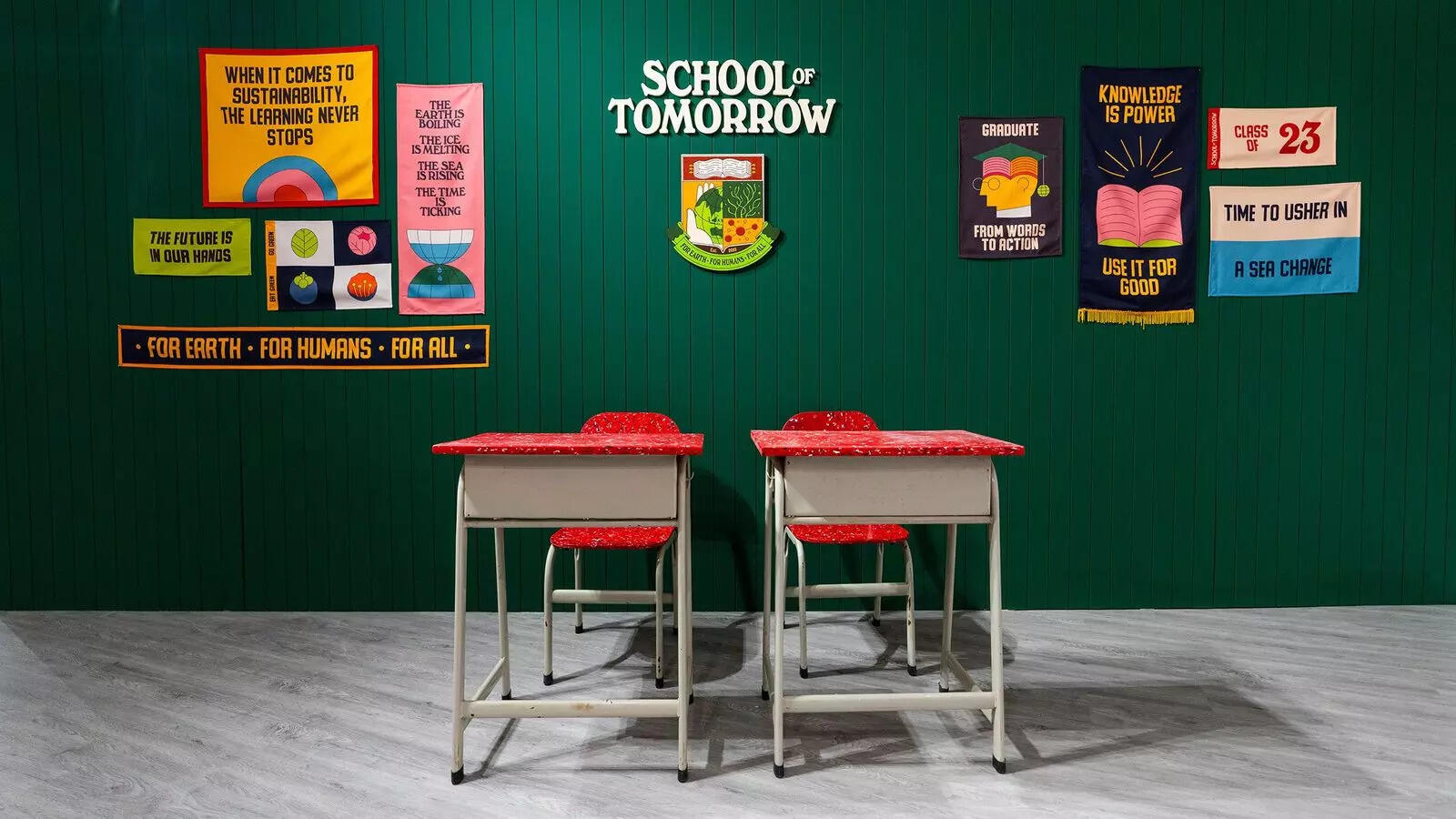
The Role of Student-Centric Inquiry and Teacher Empowerment, ETEducation

By Arti Dawar.
In recent times, there has been a clear shift in the education landscape, and the pace of this change is fast (to put it mildly). There’s the disruption effect of technology (especially AI), and structures that were once thought of as set in stone are in a near-constant state of evolution. Yet, another change is taking place within the very fabric of education, one with far-reaching consequences. The architects of this are the students themselves, a generation that no longer aligns with archaic learning systems, but asks their questions with openness and curiosity, often demanding answers to questions that were once considered ‘out of syllabus’. In doing so, though, they are leading a paradigm shift in how education was always meant to be; the single most important driving force that shapes the world, by nurturing responsible citizens and leaders, who respond to the challenges of today with clarity and foresight, and more importantly, a strong set of values.This reality is visible in daily conversations among parents, teachers, and students. Families want their children to thrive in an uncertain world. Educators are keen to nurture knowledge, resilience, and curiosity. Students today are self-aware and leading the charge on how ‘leadership in education’ is supposed to go beyond the constraints of syllabi-oriented classroom learning. The shift is towards fostering clear vision, empathy, and courage.
The Power of Asking Bold Questions
The journey for any school that seeks to transform its existing programmes starts with asking future-forward questions and not accepting the status quo. How do we prepare children for jobs that do not exist today, but will emerge over the coming decades? How do we make them adaptive to an unpredictable world, without losing confidence or the joy of learning? How do we ensure teachers are empowered to be the architects of change instead of doing what is prescribed by outdated systems?
Schools that take these questions seriously are beginning to design education models based on inclusion and responsiveness to change. Interdisciplinary projects, inquiry-driven lessons, and real-world applications are replacing rote instructional models. Emerging global models are showing us that this shift is real and that it can be done well. Finland’s phenomenon-based learning and Singapore’s inquiry-led methods are examples that highlight how curiosity can become the cornerstone of education. The message is clear. The courage to ask bold questions creates future-ready classrooms.
Innovation with a Human Touch
Innovation today is largely considered synonymous with technology. Digital classrooms, artificial intelligence, and data-driven assessments are often seen as the hallmarks of progressive education. Certainly, these are tools that create possibilities for change in education and a focus on personalised learning, but they are not enough on their own. Without empathy, technology risks reducing education to a transaction.
The recent pandemic made this lesson clear. Online platforms kept the learning going, but what truly sustained children were moments of connection with their school community. A teacher calling to check in, a peer circle that gave students the chance to share how they were feeling, or a conversation that prioritised well-being alongside academics, these mattered most. The future of schooling lies in striking this balance: embracing innovation while holding on to the human touch.
Teachers as Architects of Transformation
Amidst all the change, one truth remains constant- educators remain at the core of education. They are mentors, guides, and sometimes lifelines for students trying to find their way. That is why any vision for future-ready schools must place teacher empowerment central to their strategies and planning.
Students flourish in education systems where teachers are trusted, supported, and given room to grow. This is confirmed by several examples. Estonia consistently ranks high in international assessments because it invests deeply in teacher autonomy and professional development. Closer home, India’s National Education Policy 2020 emphasises making teaching an aspirational profession. The message is direct and simple. Schools cannot transform without first transforming the role of the teacher, partnering and encouraging their development towards becoming an educator.
Redefining Educational Leadership
Leadership in education, in this day and age, must look very different from the past. It can no longer revolve around a near-constant emphasis on rules and regulations. The focus must be on nurturing an environment where curiosity is encouraged, so that students learn to explore rather than memorise. Failure is reframed so that mistakes are seen as stepping stones to growth. Collaboration is prioritised so that parents, teachers, and communities see themselves as partners in learning. The foundation of educational systems comes from core values, so that empathy, ethics, and inclusion guide innovation.
These ideas echo international frameworks such as the International Baccalaureate, but they also resonate with India’s long tradition of holistic and community-driven education.
Designing for Tomorrow
To stay relevant, schools must be designed for adaptability. Classrooms must be flexible, curricula must encourage interdisciplinary thinking, and student voice must be valued. Education must stretch beyond just books and exams. Arts, sports, and service-learning must be woven into academics so that children continue to develop greater curiosity, creativity, empathy, and leadership alongside knowledge.
Equally important is giving teachers the freedom to innovate. When they are trusted to co-create, experiment, and bring their authentic selves into classrooms, both educators and students grow together. This approach reflects the spirit of NEP 2020, which emphasises autonomy, innovation, and teacher-led transformation.
The Legacy of Visionary Leadership
The future of education will not be defined by technology alone. It will be shaped by leaders and educators who keep imagination, empathy, and courage at the centre of learning. The questions being asked today about resilience, innovation, and teacher empowerment will determine how prepared schools are for the challenges of tomorrow.
True leadership in education is not about predicting the future with certainty. It is about preparing for it with foresight, compassion, and conviction. When innovation is balanced with empathy, and when teachers remain at the heart of reform, schools do more than create future-ready classrooms. They create future-ready generations.
All these practices, with their approaches deeply rooted in people, aim to enable schools to rise above the archetype of a traditional, established construct and thereby invest with authenticity in a progressive framework that nurtures informed individuals of tomorrow.
“Children must be taught how to think, not what to think.” This timeless reminder by Margaret Mead underscores the responsibility of education today to remain progressive, courageous, and deeply human.
The author Arti Dawar is the CEO of Shiv Nadar School.
DISCLAIMER: The views expressed are solely of the author and ETEDUCATION does not necessarily subscribe to it. ETEDUCATION will not be responsible for any damage caused to any person or organisation directly or indirectly.
Source link



